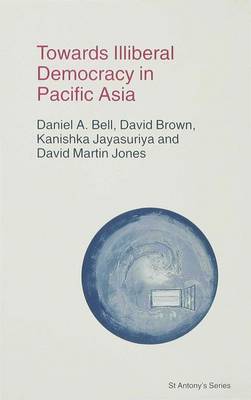St Antony's
1 total work
Towards Illiberal Democracy
by D. Bell, D. Brown, K. Jayasuriya, and D. Jones
Published 14 August 1995
This book challenges the view that liberal democracy is the inevitable outcome of economic modernization. Focusing on the stable and prosperous societies of Pacific Asia, it argues that contemporary political arrangements are legitimised by the values of hierarchy, familism and harmony. An arrangement that clearly contrasts with a western understanding of political liberalism and the communicatory democracy it facilitates. Instead of political change resulting from a demand for autonomy by interest groups in civil society, the adoption of democratic practice in Asia ought to be viewed primarily as a state strategy to manage socio-economic change.
